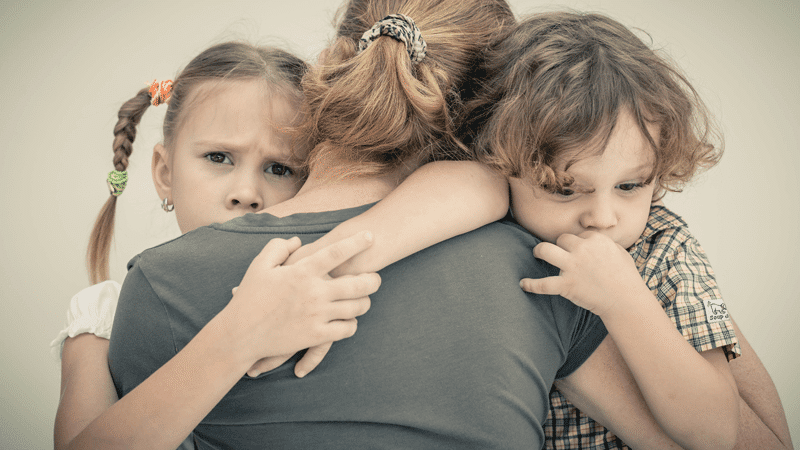Peers have spoken out against an attempt to criminalise parents who lightly smack their children.
During a debate in the House of Lords, a number of peers objected to a proposed amendment to the Domestic Abuse Bill which would ban loving parents from chastising their children in a reasonable way.
Baroness Bennett, who tabled the amendment, described smacking as “physical attacks” but others said this language was “extreme”.
‘No evidence’
Baroness Hoey said: “It is important we remember that all the law currently allows for is a parent to, if they wish, use a very mild smack on the bottom or a tap on the back of the hand or leg.
“There is no evidence that this very moderate and limited defence has been misused to allow parents to get away with abusing their children.
“The idea that it leads to escalation — a parent using a very mild smack today will beat their child black and blue tomorrow — is such an insult to millions of normal, decent parents who would never dream of doing any such thing.
“You might as well say that shouting at your child should be banned, because that too can sometimes escalate. It is a ridiculous and offensive notion”.
‘Unwanted and unwelcome’
She continued: “We know there are no popular calls for a ban. It may be an issue which obsesses certain activists and people, but the idea that the public are clamouring for us to criminalise parents who smack is far from the truth.
“Polling in Scotland and Wales ahead of the smacking bans there demonstrates how unwanted and unwelcome these new regimes are: 76% of Welsh adults said no to changing the law in 2017 and 74% of Scottish adults opposed a smacking ban.”
She added: “Let us not pretend the Great British public have given a mandate to change the law”.
Baroness Fox of Buckley agreed, saying the amendment effectively “declares that the Government know better than loving parents, who could find themselves vulnerable to charges of common assault just for being parents”.
Irresponsible rhetoric
She added that a smacking ban is “entirely unnecessary”, because any chastisement that causes anything more than temporary reddening of the skin is already illegal.
“In other words, unreasonable punishment is already against the law, and rightly so.”
The baroness noted that, in campaigns to ban smacking in Wales and Scotland, “one of the most egregious tactics of anti-smacking lobbyists was this irresponsible conflation of smacking with gross acts of violence”.
She said this use of rhetoric “paints ordinary mums and dads as potential violent thugs or child abusers” and shows “a certain distrust of ordinary parents”.
one of the most egregious tactics of anti-smacking lobbyists was this irresponsible conflation of smacking with gross acts of violence
Parents prosecuted
Lord Currie of Kirkharle said: “I expect that most of us experienced reasonable chastisement when we were children. In 2017, a ComRes poll found that this was the experience of 85% of adults.
“If reasonable chastisement was so harmful that it deserved to be criminalised, you would expect eight out of 10 adults to manifest the same symptoms as children who have been abused. But of course they do not.
“How many of us whose parents loved us, cared for us and taught us right from wrong think our childhoods would have been better if our parents had been prosecuted merely for giving us a well-deserved smack on the bottom?
“That is what this amendment would mean for families today.”one of the most egregious tactics of anti-smacking lobbyists was this irresponsible conflation of smacking with gross acts of violence
Government position
Lord Parkinson of Whitley Bay, speaking on behalf of the Government, signalled that the amendment would not be supported.
He said: “The current legal position is clear, appropriate and protects children from abuse and harm.
“The Government do not accept that the law, as it stands, is in breach of the United Nations Convention on the Rights of the Child; we believe that it complies with Articles 19 and 37 on abuse and violence towards children.”

